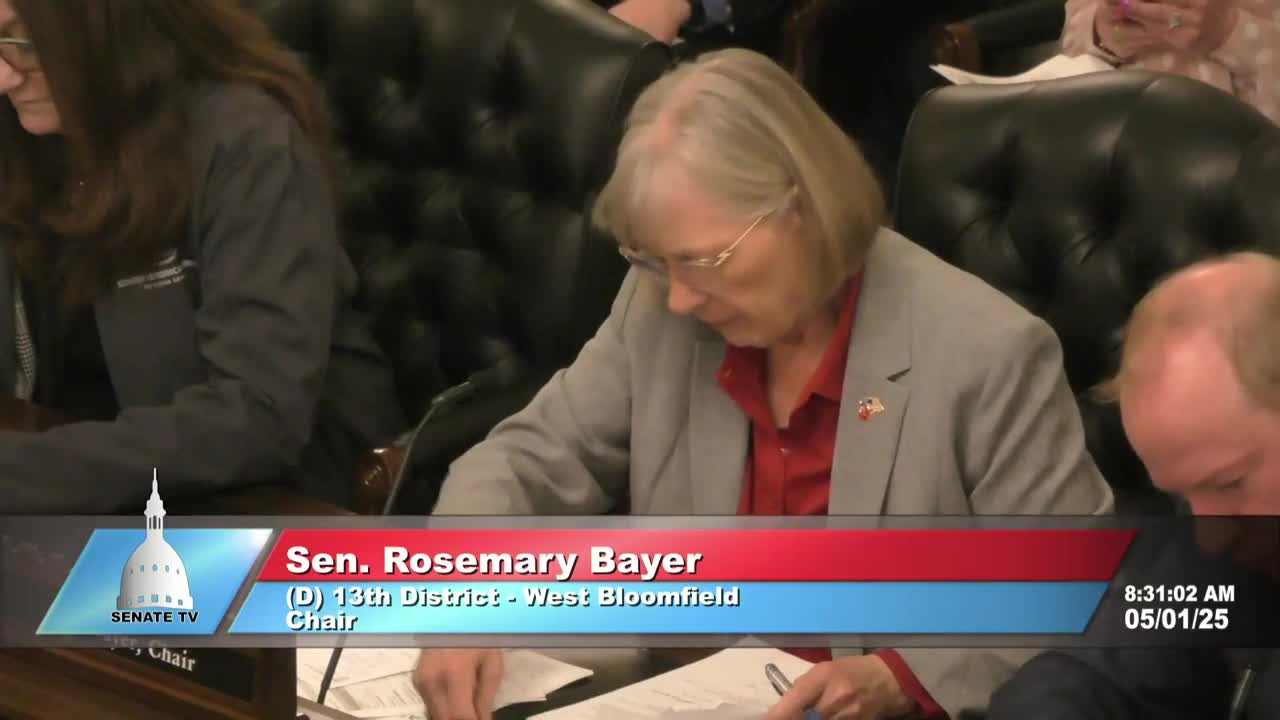Appropriations subcommittee approves $40 million to meet federal childcare maintenance requirements, boosts childcare and college success funding
Get AI-powered insights, summaries, and transcripts
Subscribe
Summary
A three-member state Senate appropriations subcommittee approved an amended budget package that increases general fund support for childcare, adds one-time payments to meet federal maintenance-of-effort rules, and adjusts higher-education wraparound funding; the panel reported S1 and forwarded SB 164 by a 2–1 vote.
Madam Chair (chair, Appropriations Subcommittee on My LEAP) told the subcommittee that the panel’s budget work combines postsecondary education and early childhood programs and that childcare funding is central to workforce development.
"It is a huge part of our economy," the Madam Chair said, arguing that childcare availability affects parents’ ability to work and that the committee had tried to direct additional funds to providers.
The committee’s clerk summarized the subcommittee’s fiscal package and the Miley proposal adopted in committee. "The Miley proposal for the full Appropriations Subcommittee includes a 14.3% gross increase from $643,000,000 to $736,000,000," the clerk said, and noted that general fund support would rise 66.2%, from $136,500,000 to $226,900,000.
Key budget moves adopted by the subcommittee include: - A $63,000,000 increase in the governor’s general fund gap-fill (reported as GFGP) for childcare funding to address shortfalls between federal support and provider costs. - A $38,500,000 one-time cost to transition the state’s provider payment model from post-pay to prepay, as required to meet federal maintenance-of-effort (MOE) timing rules. - An additional $1,500,000 (reported together with the prepay amount as roughly $40,000,000 one time) to contract for childcare services in underserved areas to satisfy federal MOE requirements. - A $23,000,000 increase in investments to raise provider pay, targeted at infant and toddler care staffing. - A $2,000,000 reenrollment initiative to re-enroll students who stopped out of college, and a $16,000,000 college-success/wraparound package (an increase of $1,000,000 above the governor’s $15,000,000 recommendation) that includes $1,000,000 for hunger-free campus efforts. - Removal of the department’s dual-enrollment line item and a one-time appropriation of $10,000 for a dual enrollment task force to study how to sustain dual-enrollment offerings. - Nearly $4,000,000 in expansion grants intended to help selected Head Start providers expand into full-service childcare if they choose.
During discussion, a senator asked for clarification about the maintenance-of-effort items. The clerk explained two separate MOE-related obligations: converting the payment model so providers are prepaid for services (requiring roughly two additional payments in a fiscal year) and demonstrating contracting or investment in areas lacking childcare. The clerk described the combined one-time cost at roughly $40,000,000.
Committee business moved quickly to votes. Senator Kleinfeld (member, Appropriations Subcommittee on My LEAP) moved to adopt the S1 substitute for SB 164; the roll call recorded Senator Baker (member, Appropriations Subcommittee on My LEAP) and Kleinfeld voting yes and Senator Albert (member, Appropriations Subcommittee on My LEAP) voting no, yielding a 2–1 adoption of the S1 substitute. The same 2–1 tally was recorded when the subcommittee voted to report SB 164 out of committee.
The subcommittee also approved minutes from prior meetings by unanimous voice or without objection and then adjourned.
The actions are procedural votes forwarding an amended SB 164 with the budget adjustments described; no additional directives to agencies or binding statutory text beyond appropriations were adopted in this session.
